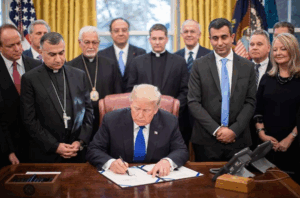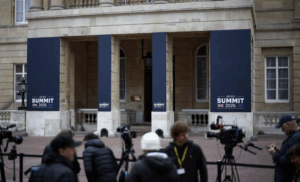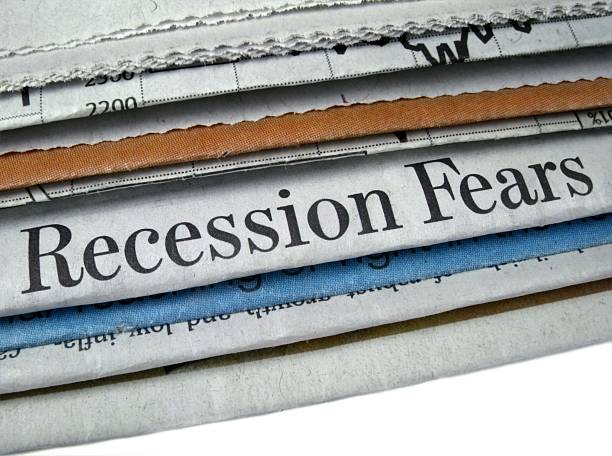Where does this money come from?
6,000 billion dollars is an inconceivable sum on a human scale, and yet that’s exactly what Black Rock is playing with. Indeed, Black Rock is an investment company. By definition, it mainly uses what is known in the technical jargon as OPM, literally « Other People Money ». So, this $6,000 billion doesn’t come from Black Rock, it’s not « its » money, strictly speaking. It’s the money of big investors like: the Norwegian sovereign wealth fund, the Californian pension fund, the money of banks, insurance companies. However, it’s also the money of millions of small savers. It can be the money a person put aside for retirement or someone wanting to invest part of their money to go on vacation.
In short, anyone or anything can apply to Black Rock and invest in the financial markets. And all these investments put together mean that Black Rock raises more money than most of the world’s banks.
This multinational therefore has a huge responsibility. This includes not only to manage the money of millions of savers, but also to invest this money. All in all, Black Rock may be working with the money and future of billions of people.
However, this multinational is still very secretive about its inner workings. Moreover, most of its employees are too afraid of reprisals if they come forward.
What are ETFs, and what are they used for?
An ETF is a financial product that stands for « Exchange Trade Fund »: a very barbaric name to say that if a person buys one, he won’t be investing in a particular company, but in a group of companies. Example: A person chooses to buy an ETF that groups together all the companies in the oil sector, or all the companies in the telephony sector, etc. There are thus thousands of ETFs.
What’s in it for you? Gains and security, according to Black Rock.
To illustrate, here’s a more specific example: an individual bought an ETF covering all the companies in the oil sector, and invested in all of them. However, one of the companies in the sector loses value, but, conversely, all the others gain value. So, in the end, the purchase will be profitable because, as a whole, the sector has made money. Black Rock is the largest provider of ETFs, which are highly prized by retail investors, especially in the United States. In fact, ETFs account for a third of the company’s assets, i.e. $2,000 billion.
There are a number of reasons why ETFs are so popular. Dirstly, the security they offer. Then, the possibility of saving at lower cost, their democratization. Last but not least, the fact that the ETF bubble has been growing steadily over the last ten years. That means that their value has only increased. It’s the longest financial bubble in history. However, to claim that the growth of this bubble is eternal is nonsense. Historically, financial bubbles have always burst eventually, like a balloon being constantly inflated. Yet Black Rock asserts the exact opposite.
What is the economic risk?
May 6, 2010, suddenly, in the space of a few minutes, short rates plunged. This largely concerned these famous ETFs. However, after a short time, the shorts recovered as quickly as they had fallen. This « flash crash » was not predicted, and to this day nobody knows why it happened. The only information that has emerged is that ETFs were particularly involved.
In 2015, Carl Icahn (a well-known investor) described, publicly, and in front of Larry Fink (Black Rock’s boss), Black Rock as a « dangerous » company. He accuses Larry Fink and Janet Yellen (then Chairwoman of the US Federal Reserve (FED)) of taking the risk of another financial crisis. The Financial Stability Board (an oversight body set up by the G20) would have us believe otherwise. In fact, according to the Board, Black Rock’s activities had become so extensive that if their clients were to sell (for whatever reason) their ETFs too quickly, the entire stock market could collapse. The result would be a global economic crisis.
A system already exists to try and limit the consequences of an economic crisis in Europe. This has been set up by the ECB (European Central Bank) since 2014. Banks must have 13 to 14% equity capital. Equity is the money that a bank actually has. This makes it possible in the event of an economic crisis to act as a cushion that would absorb part of the shock. However, despite the fact that Black Rock handles more money than most banks, that millions of individuals and thousands of companies rely on it, that it plays with the money of certain States, that it influences the markets by its very presence, that the body created by the G20 affirms that this company has become too big, this multinational is not subject to regulation. The ECB in Europe doesn’t even consider it as a potential source of economic crisis.
An international study entitled « Who is afraid of BlackRock? » calls into question the current financial system of market stability and promotes stronger regulation, not only of banks but also of all other financial institutes, and Black Rock in particular. Indeed, in the event of an ETF crash, Black Rock and the other investment firms that own ETFs (such as Vanguard) would not have enough capital to cushion part of the crisis, all due to a lack of regulation. So, who would save the system? The taxpayers, like in 2008? Do people want the mistakes of a few to be passed on to them? Or is regulation, even if it would put a brake on the growth of these multinationals in the short term, not a desirable choice? It remains to be seen which way the institutions will go…










